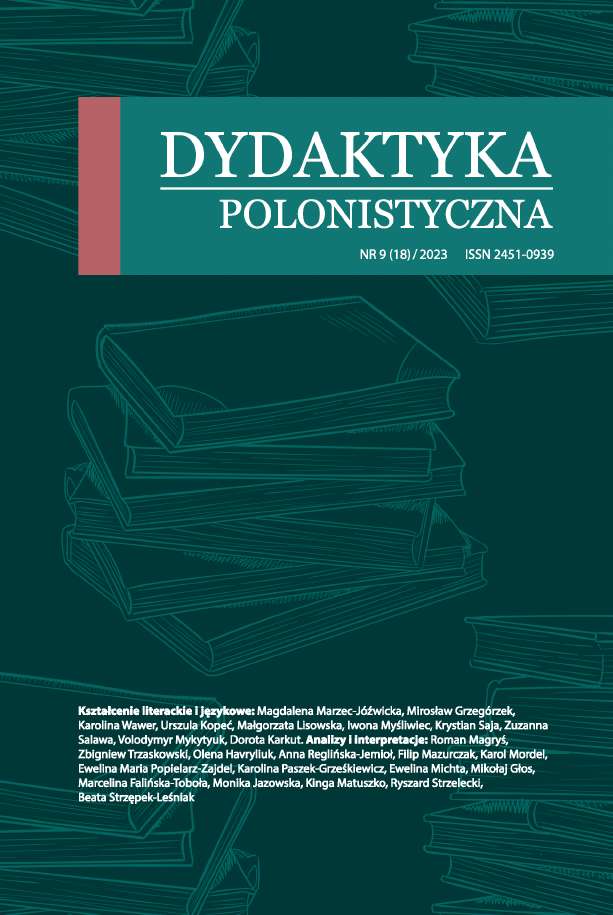Matki dzieci z niepełnosprawnościami wychodzą z cienia w reportażowych prowokacjach Jacka Hołuba
DOI:
https://doi.org/10.15584/dyd.pol.18.2023.24Słowa kluczowe:
reportaż, Jacek Hołub, niepełnosprawność, narracja, macierzyństwo, stereotypy, dyskursAbstrakt
Artykuł dotyczy rozważań na temat analizy wybranych reportaży Jacka Hołuba ze zbiorów Żeby umarło przede mną. Opowieści matek niepełnosprawnych dzieci oraz Niegrzeczne. Historie dzieci z ADHD, autyzmem i zespołem Aspergera. Autorka koncentruje się na charakterystyce narracyjnego dyskursu macierzyńskiego realizowanego przez kobiety wychowujące niepełnosprawne dzieci. Jacek Hołub, oddając głos matkom, daje możliwość upublicznienia ich perspektywy przeżywania macierzyństwa. W tekście podkreśla się szczególną rolę reportażysty, który konstruuje wiarygodny opis kulturowy poprzez „matrifokalność”, wyrażoną za pomocą upodmiotowienia matki w procesie narracji. Wnioski dowodzą, że prowadzona opowieść stwarza szansę odzyskiwania własnej tożsamości przez poszczególne bohaterki reportaży, a także rozwija empatię czytelnika oraz walczy ze stereotypami społecznymi.


